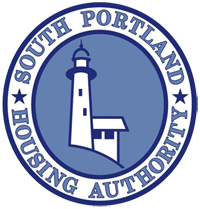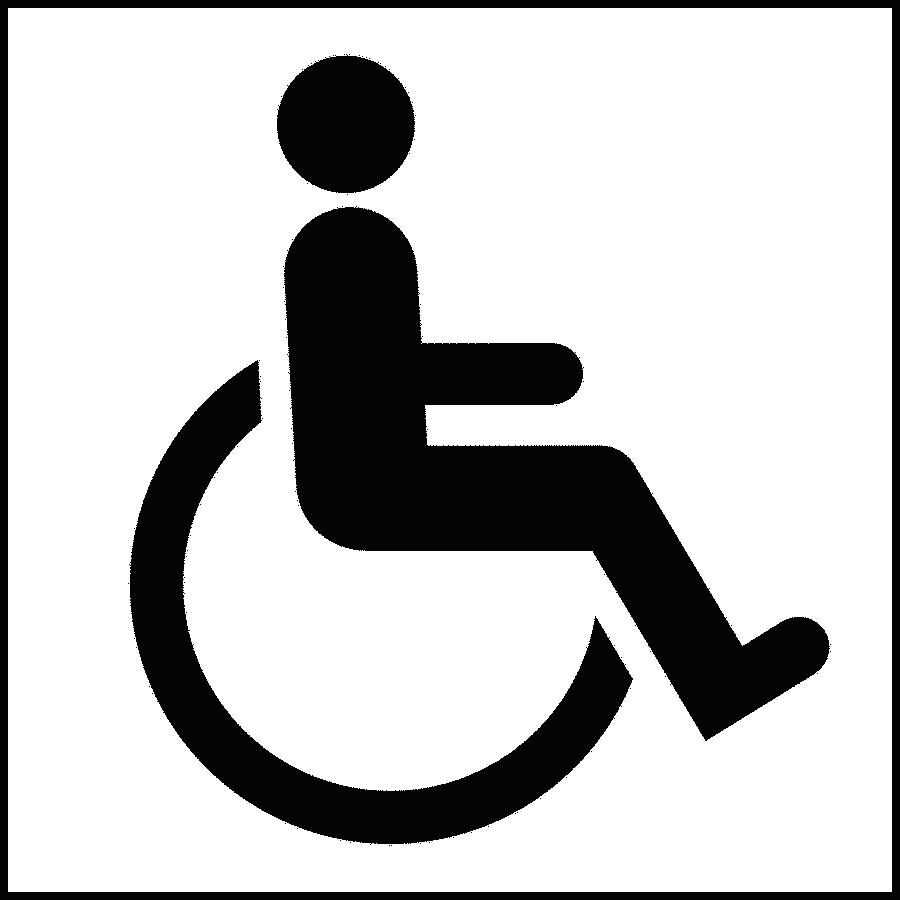

Reasonable Accomodations
Click here to download or print a Reasonable Accommodation Request Form
Click here to download or print the Reasonable Accommodation Policy
Sometimes people with disabilities may need a reasonable accommodation in order to take full advantage of the South Portland Housing Authority housing programs and related services. When such accommodations are granted, they do not confer special treatment or advantage for the person with a disability, rather, they make the program fully accessible to them in a way that would otherwise not be possible due to their disability. It is the policy of the South Portland Housing Authority to be in full compliance with all requirements of the Federal Fair Housing Act (FHA), the Americans with Disabilities Act (ADA) and Rehabilitation Act of 1973, as well as the Maine Human Rights Act (MHRA).
The Fair Housing Act and Maine Human Rights Act require housing providers to provide reasonable accommodations to the limitations of disabled residents. The Americans with Disabilities Act requires state and local governments and their instrumentalities, including housing providers, to provide reasonable accommodations to disabled residents. Section 504 of the Rehabilitation Act requires any program that receives federal funds to provide reasonable accommodations to disabled participants and forbids organizations and employers from excluding or denying individuals with disabilities an equal opportunity to receive program benefits and services.
The Fair Housing Act defines a person with a disability to include:
- individuals with a physical or mental impairment that substantially limits one or more major life activities;
- individuals who are regarded as having such an impairment; and
- individuals with a record of such an impairment.
The term “physical or mental impairment” includes, but is not limited to, such diseases and conditions as orthopedic, visual, speech and hearing impairments, cerebral palsy, autism, epilepsy, muscular dystrophy, multiple sclerosis, cancer, heart disease, diabetes, Human Immunodeficiency Virus infection, mental retardation, emotional illness, drug addiction (other than addiction caused by current, illegal use of a controlled substance) and alcoholism.
The term “substantially limits” suggests that the limitation is “significant” or “to a large degree.”
The term “major life activity” means those activities that are of central importance to daily life, such as seeing, hearing, walking, breathing, performing manual tasks, caring for one’s self, learning, and speaking. This list of major life activities is not exhaustive.
In general, a reasonable accommodation is a modification in the rules, policies, practices, or services of a housing provider that is necessary to afford a disabled resident an equal opportunity to use and enjoy a dwelling.
The Authority’s reasonable accommodation policy is designed to ensure that a resident with a disability is provided with the modifications or accommodations that are necessary to allow the resident to enjoy equal access to our housing programs and related services. Our residents will be informed of the availability of our accommodation process through notices on appropriate Authority forms and letters, including but not limited to at the time of application and lease signing, and at the time of the annual lease renewal. A request for reasonable accommodation can be made by the resident with the disability, a family member, or someone else acting on the individual’s behalf. The Authority shall make available to all persons applying for residency at the Authority, or who are currently residents, notice of the option to request a reasonable accommodation. The process for making such requests shall be accessible to all persons so an individual can understand, in a format that is appropriate to meet the needs of the individual’s disability. The Authority shall post this Policy and the related forms on its website. The following procedures will be followed by Authority representatives in implementing our reasonable accommodation policy:
- Requests for reasonable accommodations can be made orally or in writing. The SOUTH PORTLAND Housing Authority will encourage the family to make its request in writing using a REASONABLE ACCOMMODATION REQUEST FORM. However, the Authority will consider the accommodation any time the family indicates that an accommodation is needed whether or not a formal written request is submitted. If the request is made orally, it will be reduced to writing by the Authority and then reviewed with the individual requesting the accommodation for accuracy prior to submitting the request for consideration.
- All requests for reasonable accommodation received by a staff person will be conveyed to the Fair Housing Coordinator.
- If a family indicates that an accommodation is required for a disability that is not obvious or otherwise known to the SOUTH PORTLAND Housing Authority, the Authority must verify that the person meets the definition of a person with a disability, and that the limitations imposed by the disability require the requested accommodation. The Fair Housing Coordinator will send a CERTIFICATION OF NEED FOR ACCOMMODATION to the professional third-party indicated by the family on the REASONABLE ACCOMMODATION REQUEST FORM.
- If additional information is needed to determine the existence of a disability and the need for an accommodation, the Fair Housing and Reasonable Accommodation Coordinator may consult with the family, the family’s medical provider(s), as well as any other individual with relevant information concerning the requested accommodation. Any meeting concerning the request shall be held in a location accessible to the individual.
- A decision to grant or deny a reasonable accommodation will be made by the Fair Housing Coordinator in consultation with the Deputy within 20 days from which the request was submitted, or if applicable, within 20 days after receipt of additional information.
- If more than one accommodation is equally effective in providing access to the SOUTH PORTLAND Housing Authority programs and services, the SOUTH PORTLAND Housing Authority retains the right to select the most efficient or economic choice.
- A reasonable accommodation or modification request may be denied if it would impose an undue administrative or financial burden on the entity making the accommodation or cause a fundamental alteration of the housing program. If the individual’s requested accommodation would, based on objective evidence, pose a direct threat to the health or safety of others, or result in substantial physical damage to property of others, the Authority need not grant the accommodation.
- If the request is denied, on the grounds of administrative or financial burden, or fundamental alteration of the housing program, the resident and/or the SOUTH PORTLAND Housing Authority may open a dialog so that negotiation and discussion of a reasonable accommodation is an interactive process. The Authority is entitled to propose different accommodations or modifications that it believes are less costly or administratively burdensome and equally effective in removing barriers to tenancy.
- The cost of providing the accommodation, including requests for physical modifications, will normally be borne by the Authority. However, if another party or entity agrees to pay for the modification, the Authority will seek to have that entity pay for any restoration costs, if necessary.
- If a resident/program participant requests that he or she be permitted to make physical modifications to a residential unit at his or her expense as a reasonable accommodation, the Authority will generally approve such requests if they do not violate codes or impact the structural integrity of the unit.
All decisions made by the Authority on a reasonable accommodation request shall be kept confidential except insofar as disclosure is necessary to implement an approved accommodation. Any denial of an individual’s request for reasonable accommodation shall explained to the individual, in writing, the basis for the decision and the reason(s) why the request is being denied. The individual shall also be informed of his or her right to request in writing, an informal hearing on the decision by the Fair Housing Coordinator.
 South Portland Housing Authority
South Portland Housing Authority
